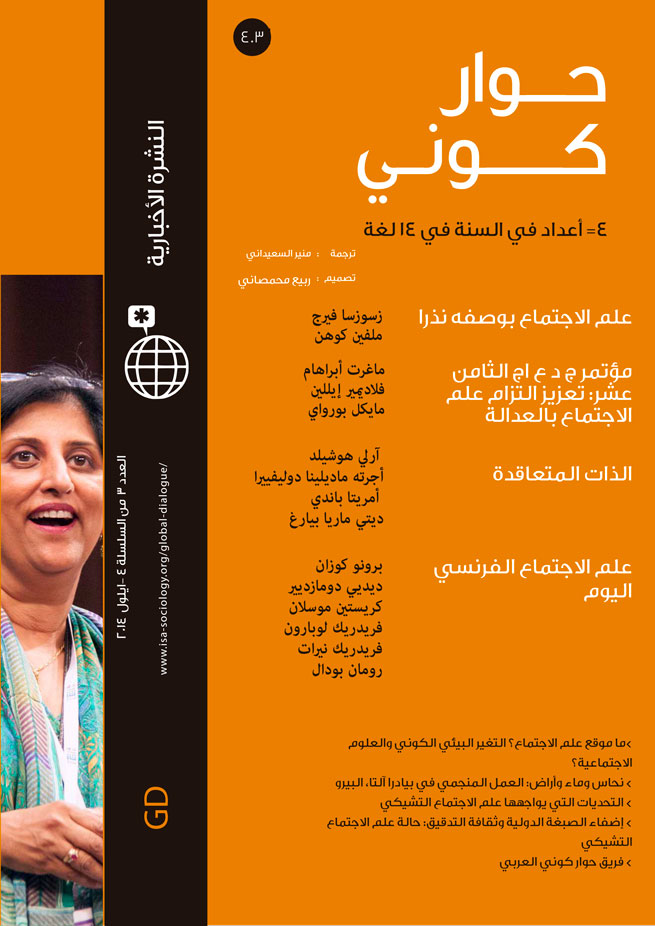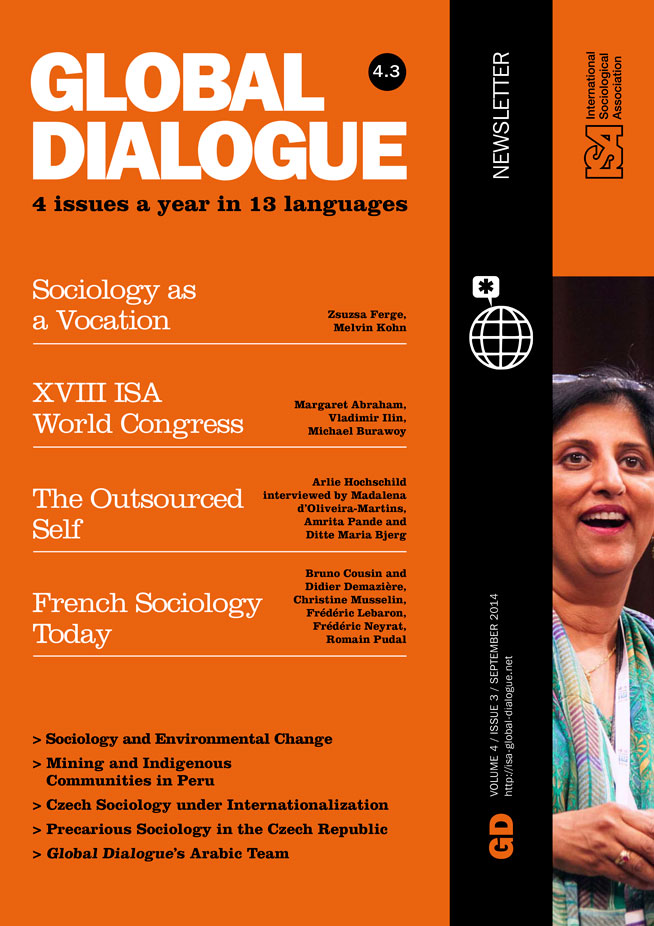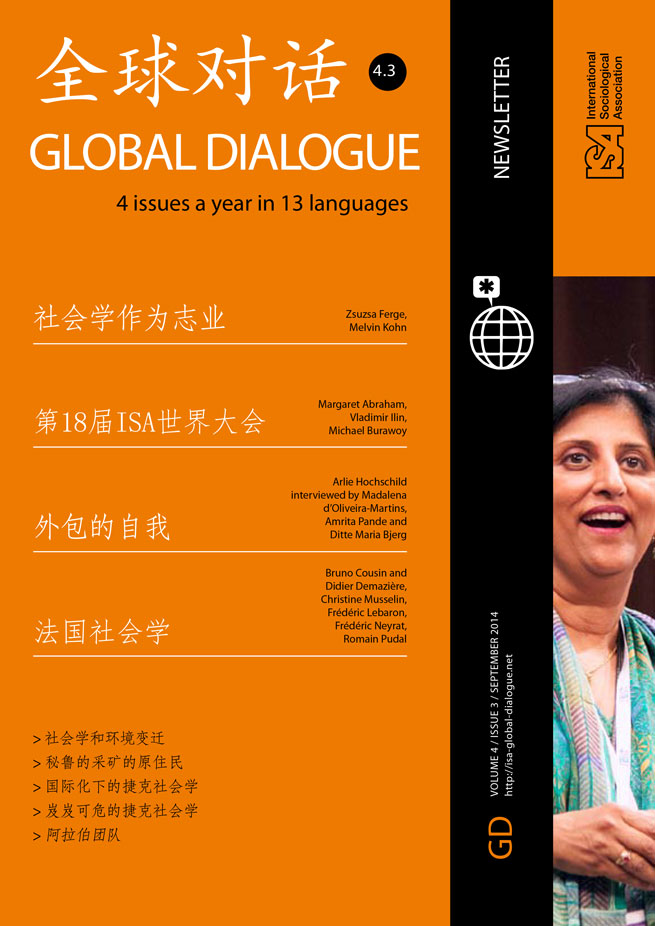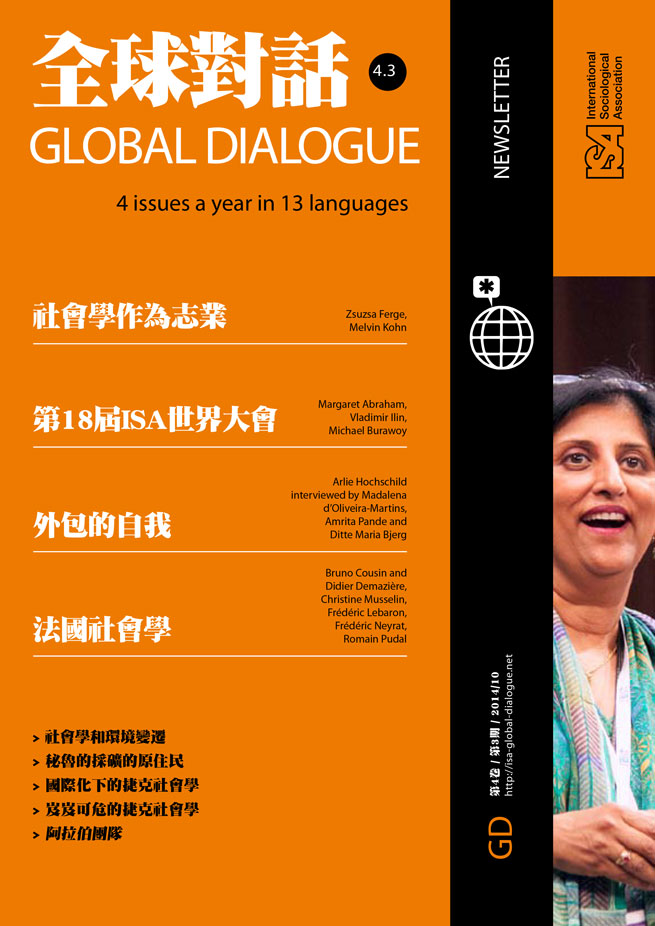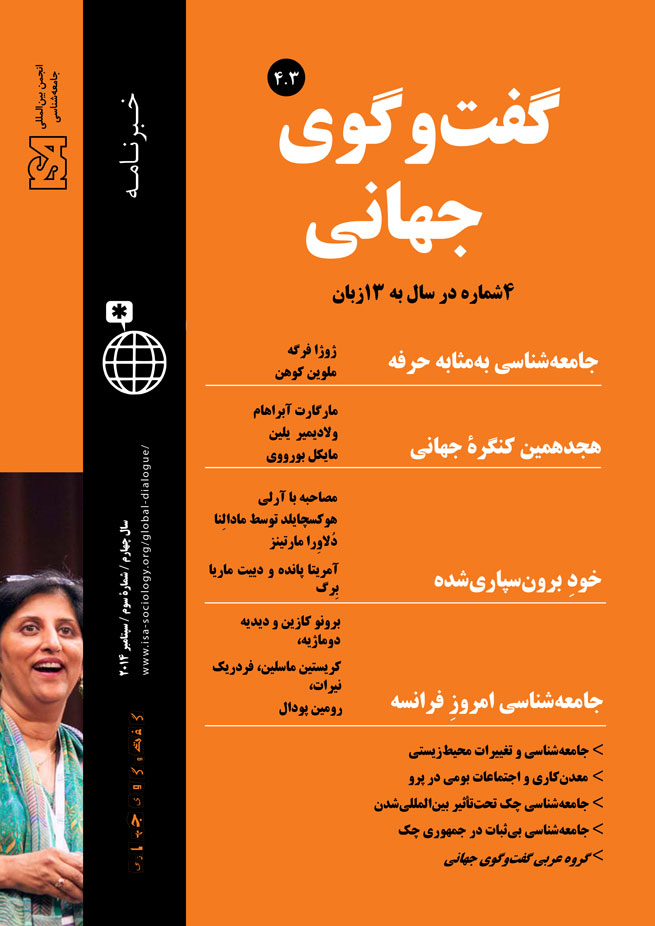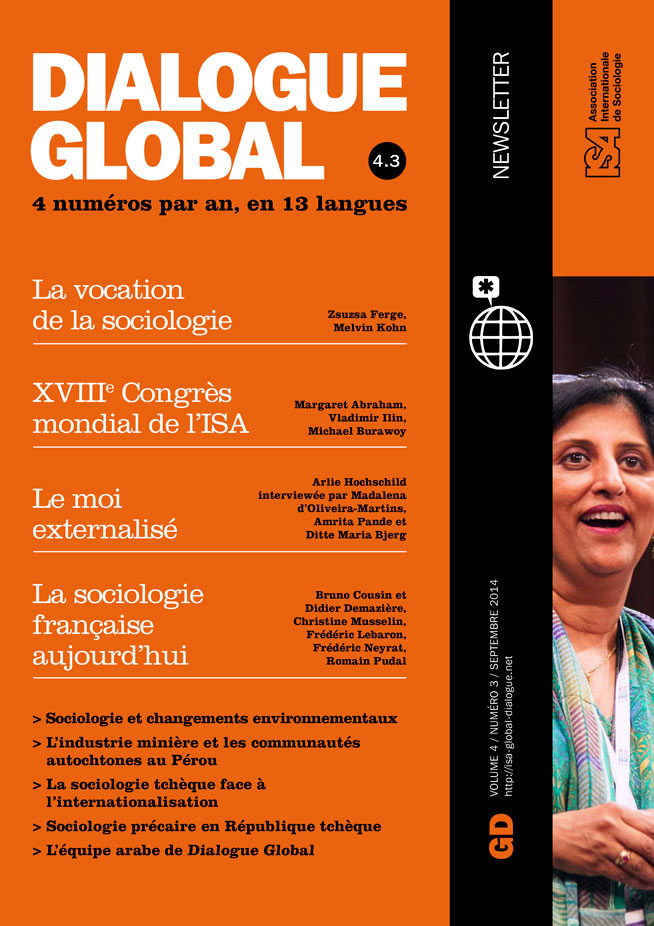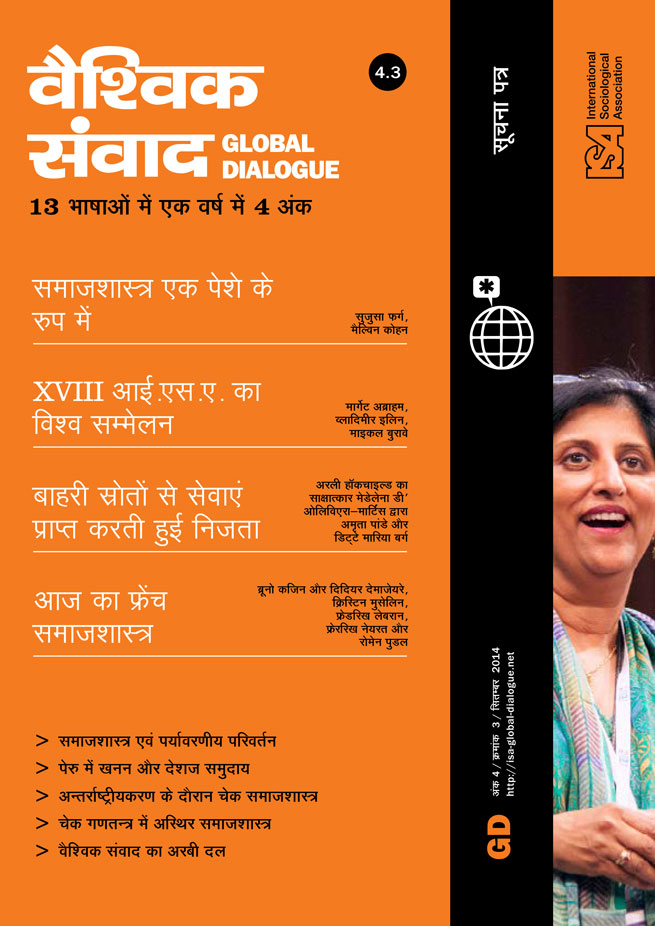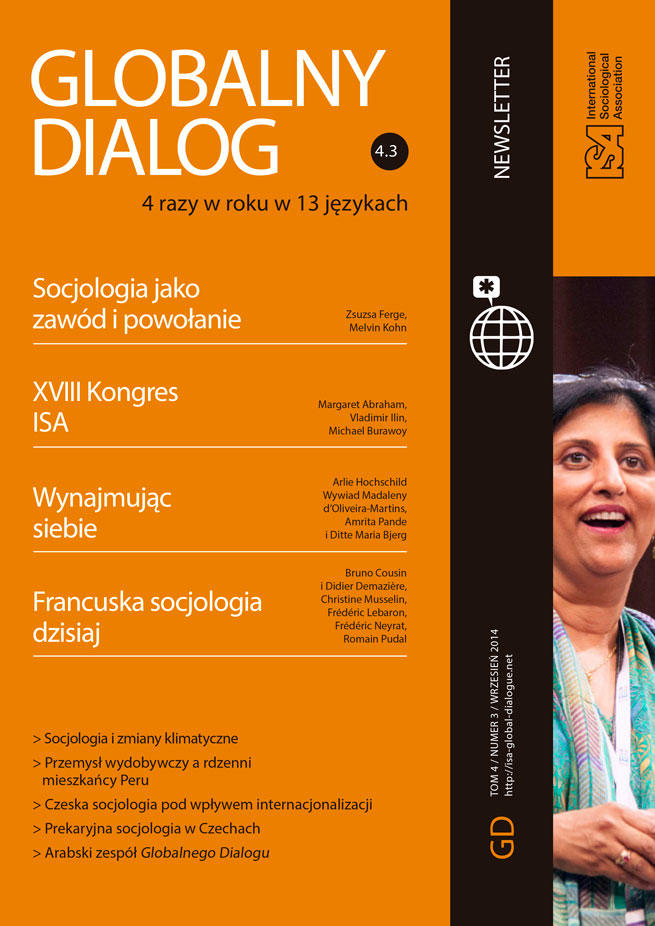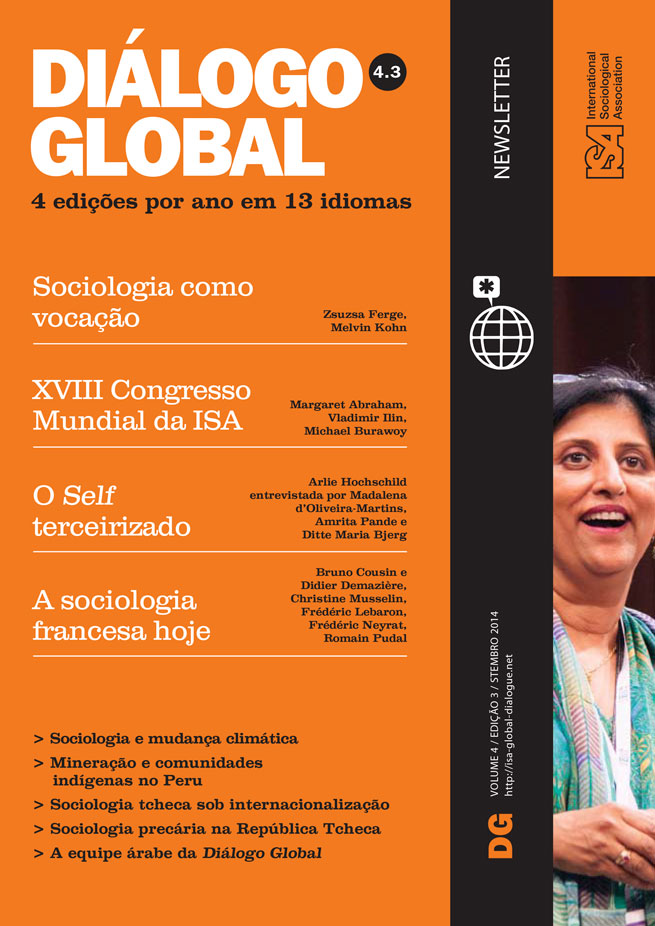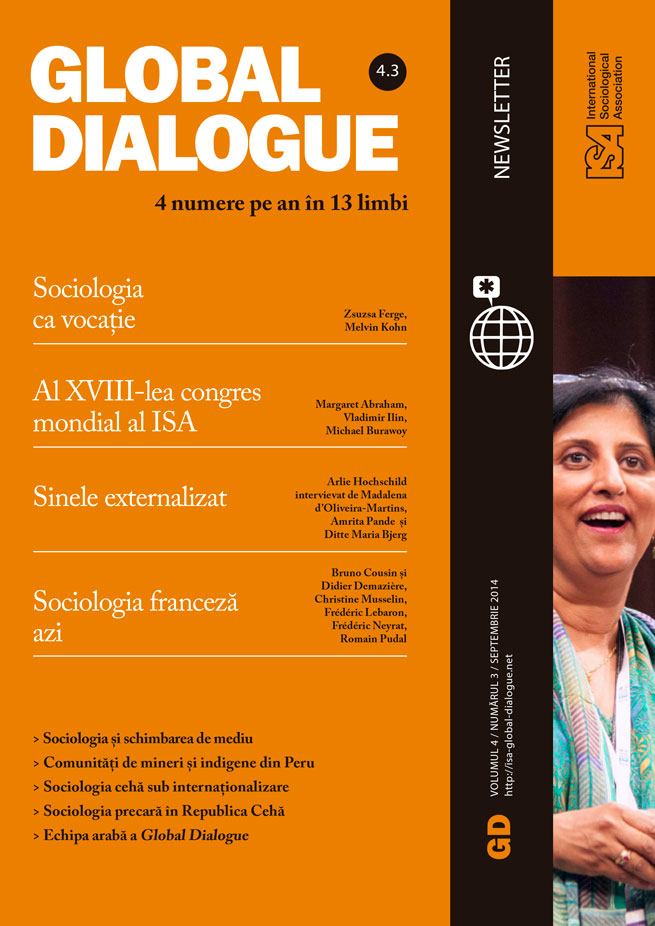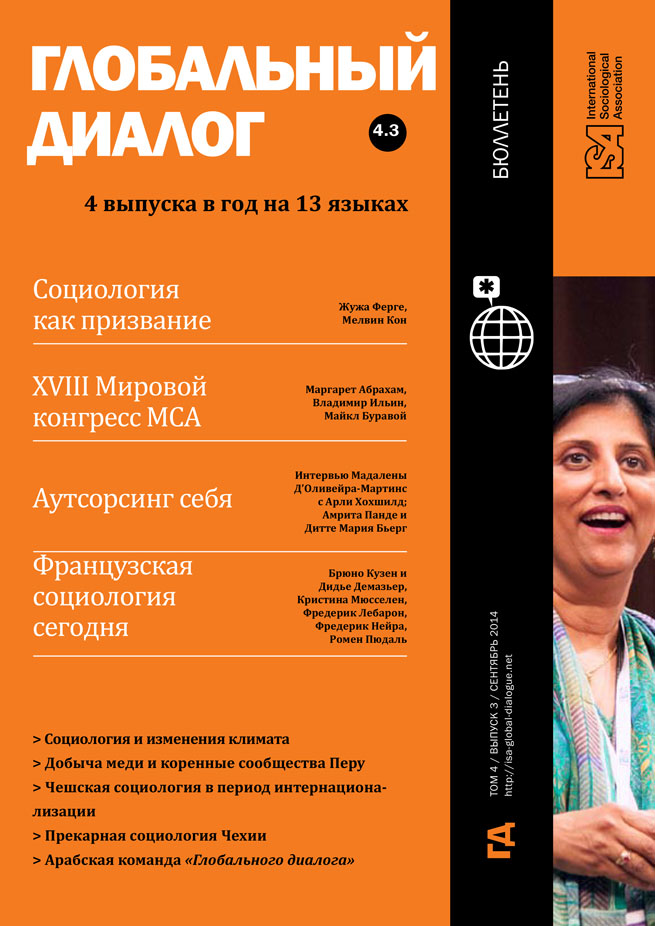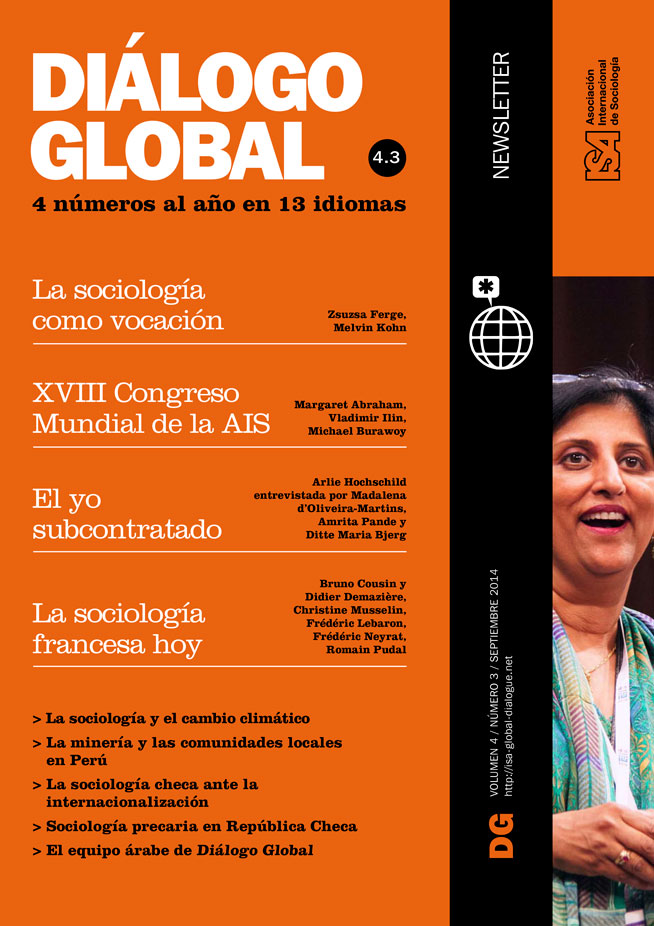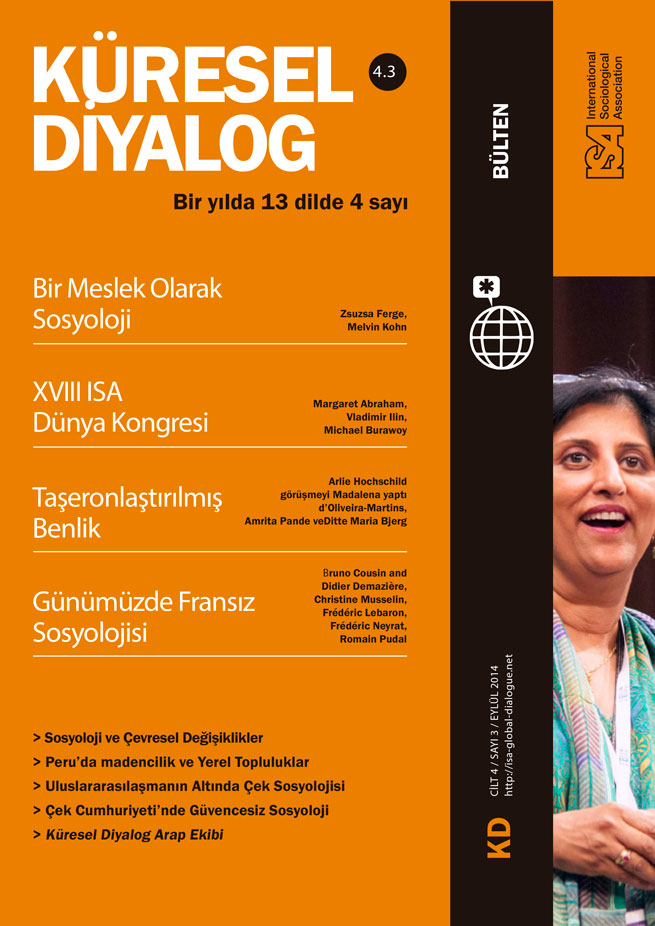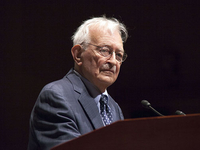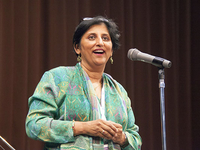Reflections on Yokohama
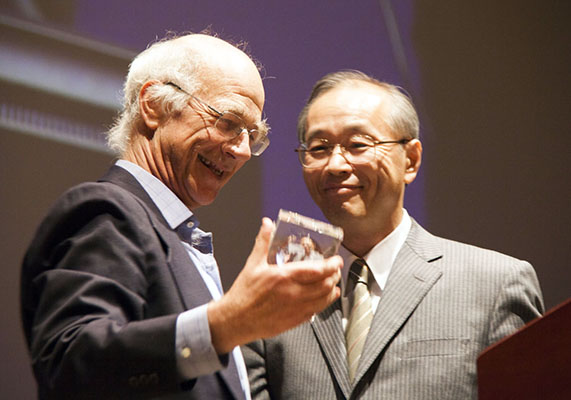
for JLOC’s dedication to the XVIII World Congress of Sociology. Photo by Kayo Sawaguchi.
September 08, 2014
The Eighteenth Congress of the International Sociological Association took place in Yokohama, July 13-19. Writing about the Congress is an unrewarding task: whatever one says, there will always be someone who will argue the opposite. With over 6,000 participants, it was such a large-scale event that I feel like the blind man trying to capture the entire elephant by touching its different parts. So I will limit my comments to a few events and some personal reflections.
Focus on Inequality
The theme of the Congress was social inequality and the challenges it posed for global sociology – a particularly pertinent theme, both because the world is not getting more just, despite optimistic projections of greater equality, and because sociology has become more sensitive to deep and often tragic disruptions of social orders, a pattern reflected in the leftward shift of global sociology. That Michael Burawoy, an eminent Marxist, was elected President of the International Sociological Association for the period 2010-2014, and Erik Wright, Marxist analyst of class, also present in Yokohama, was elected President of the American Sociological Association are facts that speak for themselves. The left trend in world sociology is reinforced by the growing number of sociologists from Latin America, Asia, and Africa, where social contradictions of capitalism are revealed in dramatic forms, stimulating novel forms of critical theory. In his Presidential address, Michael Burawoy called attention to the election of Pope Francis in 2013 – the first Pope from the Global South, and one uniquely concerned with questions of inequality. It was quite unexpected to hear a left sociologist citing the Pope’s Apostolic Exhortation (not just phrases but six concise theses!) about social inequality, an anti-capitalist Catholic Manifesto organized around the idea that money should serve, not govern! Burawoy also noted that economists – who traditionally overlooked social inequality – have begun to turn their attention to social inequality.
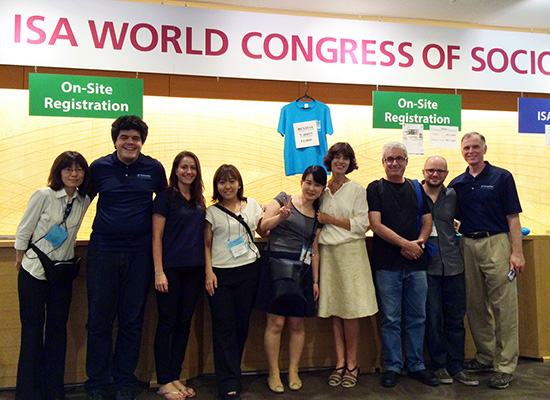
Burawoy began by noting that participation in the Congress reflected global inequalities in material resources and the development of sociology: although increasing numbers of ISA members live outside the Global North, 71% of Yokohama participants came from the world’s richest countries and only 10% came from its poorest countries. When the ISA was established in 1949 it only represented sociologists from the US and Western Europe. Today the picture is far more diverse.
Yet many believe that democratization of the sociological community has a downside: more participants lack systematic professional education, and do not have opportunities to improve their qualification, to participate in research, or to access current sociological literature. Immanuel Wallerstein, veteran and former President of ISA, told us that the first Congress he attended in 1959 included only 300 participants. Almost all came from Western countries, and the meeting attracted many “stars” of the professional community. While over 6,000 attended the Yokohama congress, by no means all “celebrity” names were represented in its program. Many sociologists consider smaller seminars and conferences more efficient investments of time and money; most sociologists are known only to their own colleagues. Yet how are we to enhance the overall level of sociology, unless all sociologists are able to participate in a global dialogue? This contradiction between democratization, on the one hand, and nostalgia for a former elite status, on the other, signifies an emerging tension in world sociology.
The Public Sociology Agenda
At this congress Michael Burawoy stepped down from being President. He made his mark by building a global sociological community through the expanded use of social media – what he called digital worlds – and also by constantly traveling to meet with sociologists across the globe. Formulating a very clear and comprehensible – though by no means universally shared – concept of public sociology, Burawoy argued that sociologists could do more than conduct research and speak to a narrow circle of colleagues; their goal should be to hold up a mirror in which society can see itself in a transparent and systemic form. This vision of public sociology was organically complemented by an attempt to shift the balance of power in the sociological community, advancing a sociology sensitive to problems of countries outside the West. Gradually, this idea has radicalized sociology, making it an intellectual tool for forces struggling to create a more just world.
By focusing our attention on the subject of social inequality, the Yokohama Congress actualized this project. The idea that sociologists could actively participate in changing the world is not new. After all, classical Marxist sociology was designed as much to change the world as to offer scientific analysis. The beginning of American sociology was closely tied to movements for social reform. Pitirim Sorokin was actively engaged in the 1917 Russian Revolution, almost losing his life in the process. Several ISA presidents have been active in the political arena: Jan Szczepański and Alberto Martinelli were elected to their countries’ legislative bodies; Fernando Henrique Cardoso was elected a senator and later a President of Brazil.
Differing views were expressed during the Yokahama session with former presidents. Piotr Sztompka, a former ISA President (2002-6) and professor at Krakow University, one of the most articulate opponents of public sociology and its revolutionary connotations formulated an alternative approach, describing sociology as an academic discipline involving careful, objective research, which, he argued, should not be involved in changing the world. Sociologists’ place is in the library, not on barricades. According to Sztompka, the primary duty of sociologists who genuinely want to address inequality is to understand the phenomenon. Most sociologists, he claimed, support reform, but sociologists cannot produce change by moralizing, preaching, or through ideological manifestos. Sociologists’ responsibility is to reveal mechanisms and patterns of social life – including those which generate and reproduce inequality or injustice. Karl Marx spent most of his life in the library, not on barricades; he became a giant of social thought due to Capital, not The Communist Manifesto.
In his presentation at the Congress and in earlier publications Sztompka has promoted the idea of a singular sociology, equally applicable to wealthy and poor countries. One cannot have separate sociologies for different worlds. Social mechanisms and cycles of social change are the same for all corners of the globe, although their phenomenal forms will vary; standards for sociological research and criteria for the evaluation of theories are also universal. Apparently, neither side is right or wrong. Sociology can take different forms and sociologists choose the path that best fits their character, skills, and beliefs.
Vladimir Ilin, State University of St. Petersburg, Russia <ivi-2002@yandex.ru>

